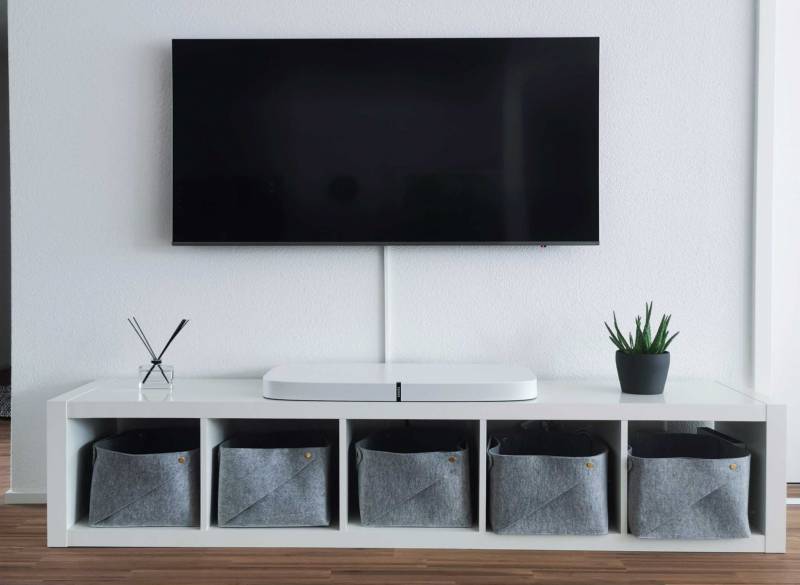The Importance of Turning Off Your TV in the Dining Room
When it comes to mealtime, the dining room is a space where families come together to share a meal and catch up on the day's events. However, with the rise of technology and the constant presence of screens, the dining room may no longer be the technology-free zone it once was. In particular, the TV in the dining room has become a common feature in many households. While it may seem harmless, having a TV in the dining room can actually have negative effects on family bonding and overall health. In this article, we will explore the top 10 reasons why you should consider turning off your TV in the dining room.
1. Promotes Quality Family Time
The dining room is often seen as a space for families to come together and bond over a meal. However, with the TV on, it can be easy for family members to become distracted and not fully engage with one another. By turning off the TV, you are creating an environment that encourages meaningful conversations and quality family time.
2. Reduces Distractions
With the constant bombardment of information and entertainment on TV, it can be easy to get distracted while eating. This can lead to mindless eating and overeating, which can have negative effects on your health. By turning off the TV, you are eliminating this distraction and allowing yourself to focus on your food and the company around you.
3. Encourages Mindful Eating
With the TV off, you are more likely to pay attention to what you are eating and how much you are consuming. This can lead to more mindful eating habits, such as savoring your food and recognizing when you are full. Mindful eating has been linked to better digestion and weight management.
4. Sets a Good Example for Children
If you have children, having the TV on during mealtime can send the message that it is acceptable to have screens on during family time. This can lead to a dependence on technology and a lack of communication and connection within the family. By turning off the TV, you are setting a good example for your children and promoting healthy habits.
5. Improves Digestion
Watching TV while eating can cause you to eat quickly and not chew your food properly, which can lead to digestive issues. Additionally, the constant stimulation from the TV can cause stress and disrupt the digestive process. By turning off the TV, you are creating a more relaxed environment for digestion.
6. Promotes Conversation
With the TV off, there is more opportunity for conversation and connection with your family members. This can lead to stronger relationships and a better understanding of each other's thoughts and feelings.
7. Reduces Screen Time
In today's society, we are constantly surrounded by screens and technology. By turning off the TV in the dining room, you are reducing your overall screen time and allowing yourself to disconnect and unwind.
8. Improves Sleep Quality
Watching TV before bed has been linked to poor sleep quality. By turning off the TV in the dining room, you are eliminating this potential sleep disruptor and promoting better sleep habits.
9. Saves Energy
Leaving the TV on when it is not being watched is not only a waste of energy, but it can also lead to higher electricity bills. By turning off the TV in the dining room, you are not only saving energy, but also saving money.
Say Goodbye to the TV in the Dining Room: Why It's Time to Turn It Off

The Importance of a Designated Dining Space
 In today's fast-paced world, it's becoming increasingly common for families to gather around the TV during meal times. However, this trend is taking away from the importance of having a designated dining space in the home. Not only does a separate dining room add value to the overall design of a house, but it also serves as a space for families to come together and share a meal without the distraction of technology. That's why it's time to turn off the TV in the dining room and reclaim this important space in our homes.
In today's fast-paced world, it's becoming increasingly common for families to gather around the TV during meal times. However, this trend is taking away from the importance of having a designated dining space in the home. Not only does a separate dining room add value to the overall design of a house, but it also serves as a space for families to come together and share a meal without the distraction of technology. That's why it's time to turn off the TV in the dining room and reclaim this important space in our homes.
The Negative Impact of TV on Meal Times
 Having a TV in the dining room may seem convenient, but it can actually have a negative impact on our meal times. Research has shown that eating in front of the TV can lead to overeating and poor food choices. When we are focused on a screen, we tend to mindlessly consume food without paying attention to our body's signals of fullness. This can lead to weight gain and other health issues. Furthermore, the TV can be a source of distraction, making it difficult to have meaningful conversations and truly connect with our loved ones during meal times.
Having a TV in the dining room may seem convenient, but it can actually have a negative impact on our meal times. Research has shown that eating in front of the TV can lead to overeating and poor food choices. When we are focused on a screen, we tend to mindlessly consume food without paying attention to our body's signals of fullness. This can lead to weight gain and other health issues. Furthermore, the TV can be a source of distraction, making it difficult to have meaningful conversations and truly connect with our loved ones during meal times.
Creating a More Inviting Dining Space
 By removing the TV from the dining room, we can create a more inviting and intimate space for meal times. This allows for more meaningful conversations and quality family time. Additionally, without the distraction of a TV, we can fully appreciate the design and décor of our dining room. Investing in a beautiful dining table and chairs, as well as adding personal touches like artwork or a centerpiece, can make the space more inviting and encourage family members to gather around the table.
By removing the TV from the dining room, we can create a more inviting and intimate space for meal times. This allows for more meaningful conversations and quality family time. Additionally, without the distraction of a TV, we can fully appreciate the design and décor of our dining room. Investing in a beautiful dining table and chairs, as well as adding personal touches like artwork or a centerpiece, can make the space more inviting and encourage family members to gather around the table.
Reclaiming the Dining Room for Special Occasions
 Without a TV in the dining room, we can also reclaim this space for special occasions and gatherings. This allows for a designated area for holiday dinners, birthday celebrations, and other important events. By creating a separate space for these occasions, we can make them more memorable and meaningful, and truly appreciate the value of having a designated dining room in our home.
Overall, turning off the TV in the dining room can have a positive impact on our health, relationships, and the overall design of our home. It's time to reclaim this important space and make it a central hub for family meals and special occasions.
Let's say goodbye to the TV in the dining room and hello to a more inviting and meaningful dining experience.
Without a TV in the dining room, we can also reclaim this space for special occasions and gatherings. This allows for a designated area for holiday dinners, birthday celebrations, and other important events. By creating a separate space for these occasions, we can make them more memorable and meaningful, and truly appreciate the value of having a designated dining room in our home.
Overall, turning off the TV in the dining room can have a positive impact on our health, relationships, and the overall design of our home. It's time to reclaim this important space and make it a central hub for family meals and special occasions.
Let's say goodbye to the TV in the dining room and hello to a more inviting and meaningful dining experience.
















:max_bytes(150000):strip_icc()/200630_dom_00372-d4d4a95a392a44feaee99abbb745d30d.jpg)













































/dining-room-lighting-4157465-hero-28e9226fa7fb4f7e9f86a062ff22111c.jpg)

















